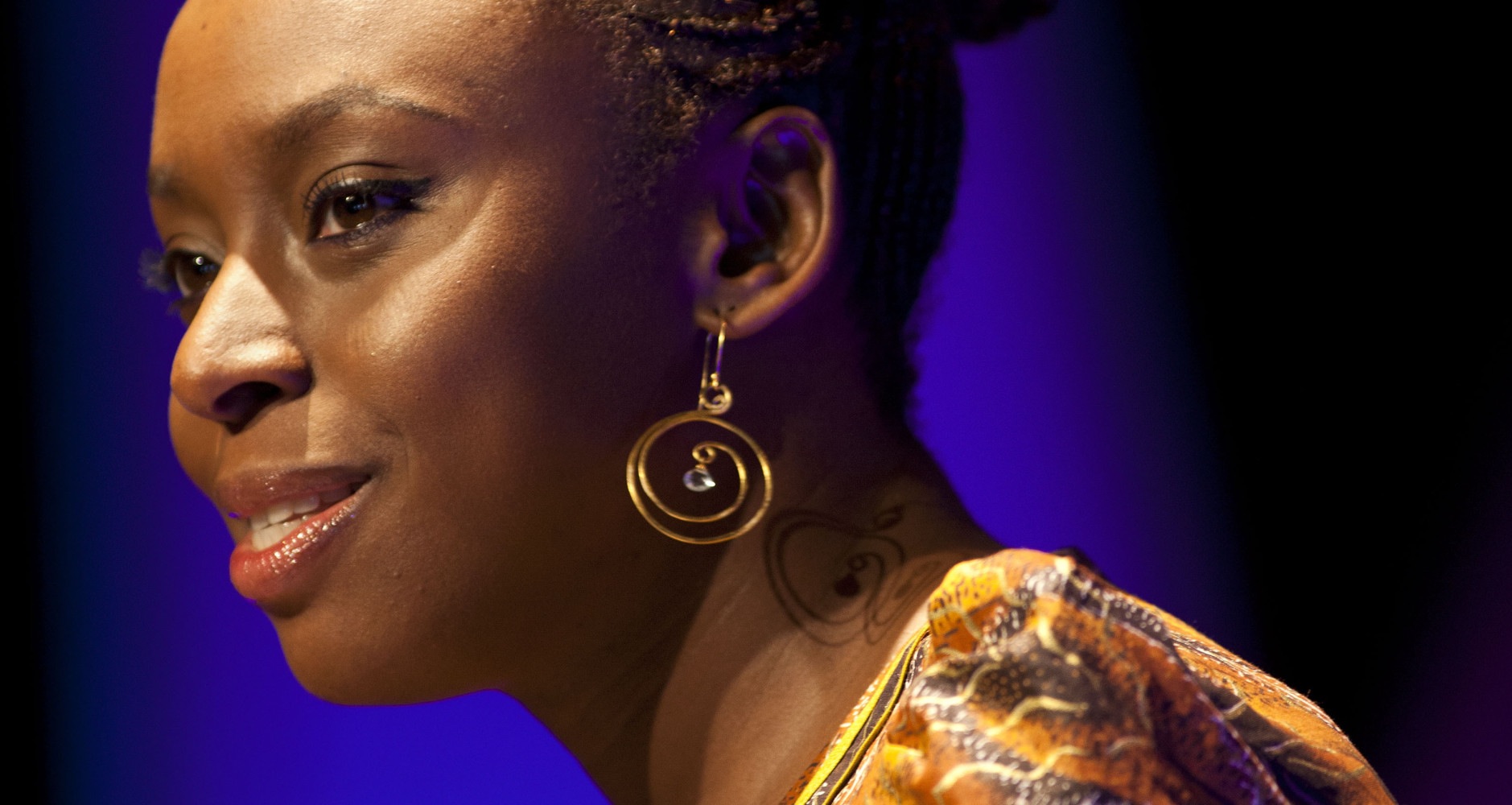by Harleen Kaur
Finding books that accurately portray the struggle of immigrant communities and women of color is a struggle, even as an English major. But I know I can always count on author Chimamanda Ngozi Adichie to bring truth to light and talk about experiences that are often left out of the “American” narrative. In her most recent novel Americanah, Chimamanda tells the story of a young woman who grows up in Nigeria and ends up transferring to Princeton University at the end of her undergraduate career. She struggles with how Africans and even the concept of race are perceived differently in America, as well as how her identity is defined for her, based on the perceptions of others. The protagonist explores ideas of identity, love, and self-expression, but most importantly, self-acceptance.
Reading this book, I was forced to question the ways that American ideals have made me frame my identity as a Kaur, but also the ways that American ideals have made me frame the identities of others. There were many passages and one-liners that allowed me to reflect on the ways that immigrants and minority groups particularly are forced to act to blend into American society. It becomes so intact with one’s personality that it is hard to differentiate between societal pressures and your true personality. What was I before and what has society made me become?
Through advocacy work, I have seen the connectedness of communities and how interrelated our struggles are. Yet, I have also seen the way that certain communities have struggled to play into the power game, elevating themselves above others. The South Asian community has a particular problem with anti-Blackness, and its seen in the way that Indian commercials play up the beauty of whiter or “fairer” skin. Chimamanda talks about how destructive this can be for our communities and how it harms our ability to unite:
“Oppression Olympics is what smart liberal Americans say to make you feel stupid and to make you shut up. But there IS an oppression olympics going on. American racial minorities – blacks, Hispanics, Asians and Jews – all get shit from white folks, different kinds of shit but shit still. Each secretly believes that it gets the worst shit. So, no, there is no United League of the Oppressed. However, all the others think they’re better than blacks because, well, they’re not black.”
The hierarchy of color is one that I’ve seen on my campus and even within the South Asian community. Chimamanda doesn’t sugarcoat the problem though; she gives it to us straight and forces us to recognize the problematic nature of comparing discrimination.
She also discusses the struggle of being a true outsider — within and outside of one’s community, something that an immigrant experiences daily. Within sangats, I have seen the divisions of more “modernized” uncles and aunties and how they work to separate themselves from the more recently immigrated. I have seen separations of gurdwaras based on socioeconomic status and education level. I have even seen the silencing of certain voices, as Chimamanda explains:
“It was the exaggerated gratitude that came with immigrant insecurity.”
Certain community members rise to the top as their status is used as an equation of power. This has created differences in opinions and has often been resolved by the creation of a new gurdwara, rather than using our Guru’s messages to resolve the conflict through challenging and enlightening conversation.
Lastly, the point that resonated with me most as a Kaur was her discussion of self-acceptance, especially the manner in which our body was created and given to us. She talks about the struggle of what “normal hair” might be and how we are always struggling to find a balance between pleasing ourselves, pleasing society, and pleasing God.
“Relaxing your hair is like being in prison. You’re caged in. Your hair rules you. You didn’t go running with Curt today because you don’t want to sweat out this straightness. You’re always battling to make your hair do what it wasn’t meant to do.”
Chimamanda hits the nail on the head with her depiction of identity crisis in America. With such a blend of backgrounds, homelands, and mother tongues, we are all left to fend for ourselves and discover where on the spectrum our identity lies. What does it mean to be a Sikh, what does it mean to be a Kaur, and what does it mean to be American? I’ve learned to rely on my sangat to help me answer these questions, but also allow my sangat to grow beyond just Sikhs. It is through cross-cultural and interfaith discussions that I have found similarities and differences, solutions and problems, and my inner peace.
Americanah is a great novel for anyone, but it particularly spoke to me as a woman of color in America, struggling to understand how my identity fits into the larger picture. Looking forward to whatever subject Chimamanda tackles next!






